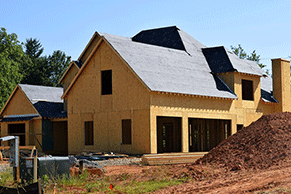With the fluctuation, real estate transactions run the risk of being burdened by a bad appraisal, and with the HVCC guidelines, this is not only much more likely to occur, but also impossible to fix without spending money for a new appraisal.
The HVCC has set up a wall between lenders and appraisers, and created a comfortable industry for the middlemen, known as appraisal management companies. These companies are responsible for much of the discontent.
1) The price of the appraisal has gone up for the consumer/homeowner, and the compensation to the appraiser has gone down. With the extra layer of compensation added by the AMCs, consumers pay more and appraisers earn less.
2) Appraisers make less and are often pressured into time constraints. AMCs take a cut of the fee paid to the appraiser. More experienced appraisers leave the business due to less pay and strenuous working conditions.
3) With no direct contact allowed, AMCs are free to hire any appraiser they choose. This can cause all kinds of problems. We have seen appraisers come from out of the area to evaluate homes in neighborhoods they are not familiar with. Why is this a problem? As we discussed earlier, the market is in disarray and foreclosures are artificially dropping prices. Now more than ever, we need experienced, local appraisers to make a fair valuation.
4) Mortgage brokers and real estate agents cannot contact appraisers.
5) Brokers cannot discuss value with the appraisers prior to spending your money. In borderline situations, you the broker is not able to determine if the deal is viable prior to making an investment, which puts your money at risk if the appraisal comes back worse than expected.
6) Appraisals cannot be transported from bank to bank. Remember when we told you that lenders have added AMCs as a new profit center? As a result, banks have little incentive to let the appraisal be passed around.
7) Brokers are unable to contest the value when the appraisal is low, inaccurate, or difficult.























